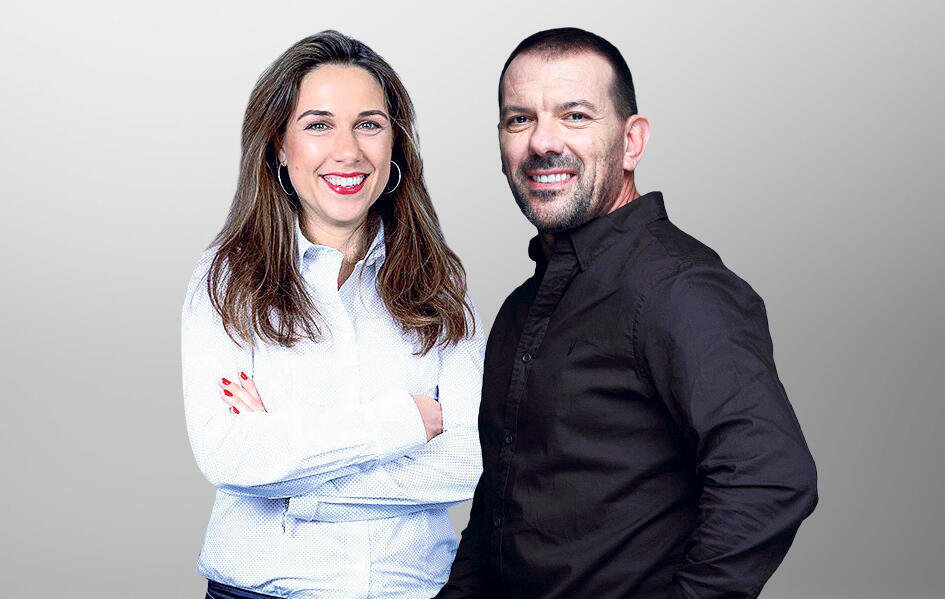
Pulling the plug: Growth funds halt investments in Israel
In the last 8 months, the local and foreign growth funds made almost no new investments in Israel. "Investors made it clear to me that during this period they were not investing and I had to fire dozens of additional employees," said one senior entrepreneur
"I turned to all my investors and asked them to invest an amount that was not significant for them, but which was essential for us. I asked for an amount between $5-10 million, under any conditions, that would allow us to reach profitability. We have already raised tens of millions of dollars, but they made it clear to me that during this period they were not investing and I had to fire dozens of additional employees," a senior entrepreneur of an Israeli startup told Calcalist.
Until now, the accepted assumption was that entrepreneurs do not want to raise money so as not to damage the value of their company, which would almost certainly take a hit from previous highs. However, it turns out that there are many entrepreneurs who are very interested in raising money, but simply can’t find investors. These are investors who, until a year ago, poured tens of millions of dollars into companies with almost no due diligence, and at the rate of an investment per week. However, between September 2022 and April 2023, they made almost no new investments, according to a Calcalist survey of the leading growth funds in Israel.
In 2020 and 2021, the magic word was growth, and tens of billions of dollars flowed into Israel, either through local funds or through foreign funds, with Tiger Global and Insight Partners, standing out above all others. In those years, the startup companies raised tens of billions of dollars to support rapid growth, and at an absurd value. Companies recruited hundreds of employees and made every possible move to show impressive growth figures.
To this end, many funds were established and they easily raised hundreds of millions of dollars to support the rapid growth. The funds rushed to spend money with little due diligence, and the value of many of the startups swelled out of all proportion. However, in the last eight months, Tiger Global and Insight Partners hardly invested in growth companies. Insight made only one new growth investment during this period, and five follow-on investments.
During this same period, several leading local funds did not make a single new investment, including: Viola Growth, IGP and Qumra. Meanwhile, Pitango's growth fund made only one new investment in Israel and one more in Europe. The other growth funds also did not show significant activity in the last two quarters.
There are a number of reasons for this almost sudden stop. The first is the economic uncertainty in a world that is under constant interest rate hikes and is facing the threat of a recession. Another significant reason is a request or demand from the fund investors not to call for money during this period. Any fund that needs to invest in a company does not hold the money in its accounts, but rather requests, that is, calls for money from its investors. The investors of the Israeli or American funds made it clear that at this time they prefer not to call for money and any fund that wants a long-term relationship will not dare to contact an investor with such a demand.
Another reason is the funds' inability to raise follow-on funds as quickly, if at all, as they did in the past. The American institutions are currently reluctant to invest in funds in general and Israeli funds in particular, and the local institutions are still sitting on the fence and are not in a hurry to make decisions. Most American institutions today prefer to invest in safe returns backed by high interest rates.
Tiger Global's situation illustrates the state of the industry. The fund, which started out as a hedge fund, raised a huge fund of $12.7 billion that overnight turned it into the most influential body in the high-tech industry. It poured billions of dollars into the global and local industry, but a report released in recent days revealed that the fund informed its investors that it had suffered a loss on paper of 20%, before management fees, as of December, a significant increase from the 8% loss reported in June 2022 and the 11% loss revealed in September.
The fund was, along with Insight Partners, the most prominent growth-stage investor. "The large American funds, which were 80% of the market in recent years, have made very few late-stage investments in Israel in recent months," says Erez Shachar, Managing Partner at Qumra Capital.
According to IVC data, there has been a significant decrease in the activity of foreign funds in Israel in general, making only 35 investments in the first quarter of 2023 compared to 94 in the first quarter of 2022 and 90 in the first quarter of 2021, regardless of stage.
According to Shachar: "An Israeli fund that is thinking of trying to raise money from American institutions will encounter a difficult problem, especially new funds or those that do not have a rich portfolio. Today, reaching out to foreign institutions that have not invested in the past is a waste of time, and we think that the opportunity lies with the Israeli institutions that have been active in high-tech investments and funds in the last decade. Israeli institutions still allocate funds to high-tech and do not behave like the Americans who avoid investments in Israeli funds. Israeli institutions have no problem investing in an Israeli fund and are only looking at the business opportunity. We are talking to Israeli institutions that are closely examining investment in our fund, as well as in other funds."
Shachar believes that the political situation in Israel is also taking its toll, although the main damage is from the global high-tech crisis. "If in Silicon Valley the investments dropped by about 45%, then in Israel the drop was more than 70% and the gap is probably attributed to the proposed judicial coup in Israel."
Many Israeli funds are reaching a situation where each new investment or each follow-on investment brings the fund closer to the end of its path. Many of them understand that raising a new fund today is an impossible task, especially of the same amounts they raised in the bubble years. Funds that planned to raise funds of $300-400 million will be forced to postpone their plans or settle for much more modest figures, which will inevitably lead to a decrease in the number of partners and employees in the funds. "The real difficulty is going to be for good companies that will come to the market and it will be very difficult for them to raise money. The chances that a foreign investor will put a check of $50 million in an Israeli company are quite low," said Shachar.
Natalie Refuah, General Partner at Viola Growth, said that "the situation in the market is very quiet and it comes from two directions. First, entrepreneurs do not want to raise money because their performance was far from brilliant. Multiples have dropped significantly and companies are forced to raise money at a decreasing value. Those who do not desperately need money will not go out to raise external funding. Most of the good companies have prepared themselves with many tens of millions of dollars. The other direction is from us, the funds. There is uncertainty in the market which puts pressure on investors and there is a gap in the valuation a company wants or has raised at in the past. All the parameters according to which we made investments in the past have changed and it is difficult for us to rely on plans that companies are currently making."
Guy Preminger, a Partner in the accounting firm PwC, explained that "companies that can afford it prefer not to raise funds these days. Some of them are struggling to grow and this creates a problem for them to recruit at a value that increases or is similar to the previous round. This is a period when it is difficult to grow and raise. I estimate that when this period ends and we get out of the economic crisis the competition will increase and we will see growth, but now there is a huge drop in fundraising. Most of the funds have money that they raised in the past and they are sitting on a lot of money that they can call on and don't need to raise now."
Meanwhile, Calcalist learned that Haim Shani and Moshe Lichtman's IGP is currently in the midst of raising a new fund. In addition, Viola, which manages three growth funds, the last of which was raised in 2019, stated that the fund is currently raising its fourth fund. Pitango stated: "We believe in the continued potential of investments in growth companies, and therefore we have plans in this regard." Glilot, which also runs an investment fund for advanced stages, stated that "the current market is an excellent opportunity to invest and grow."














